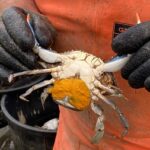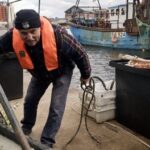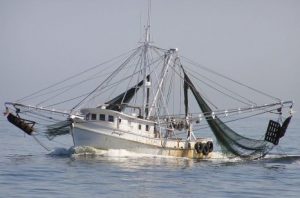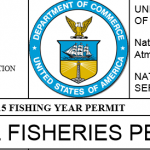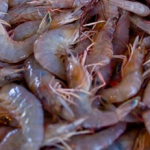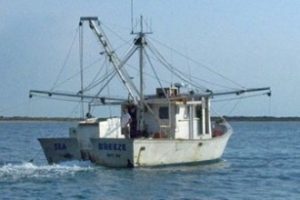Tag Archives: Bryan Jones
New bill to expand federal relief eligibility for fishing/shrimping industry
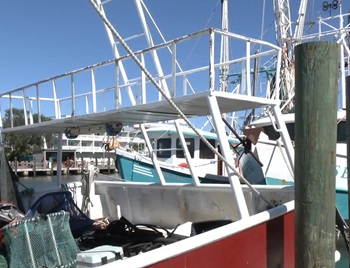 “The influx of imported shrimp has resulted in the decline of our fleets and massive job losses and our local businesses are devastated,” said Bryan Jones, the Vice President of the South Carolina Shrimper’s Association. Standing in front of the shrimp boats of Shem Creek, US Congresswoman Nancy Mace (R) introduced the Protect American Fisheries Act on Friday. “Foreign dumping of shrimp filled with contaminants that don’t meet US safety standards is undercutting honest, hardworking, American fisherman,” said Congresswoman Mace. The bipartisan bill proposes to amend the Magnuson-Stevens Fishery Conservation and Management Act to include “economic causes” as a reason for declaring a fishery resource disaster. Video, more, >>CLICK TO READ<< 06:58
“The influx of imported shrimp has resulted in the decline of our fleets and massive job losses and our local businesses are devastated,” said Bryan Jones, the Vice President of the South Carolina Shrimper’s Association. Standing in front of the shrimp boats of Shem Creek, US Congresswoman Nancy Mace (R) introduced the Protect American Fisheries Act on Friday. “Foreign dumping of shrimp filled with contaminants that don’t meet US safety standards is undercutting honest, hardworking, American fisherman,” said Congresswoman Mace. The bipartisan bill proposes to amend the Magnuson-Stevens Fishery Conservation and Management Act to include “economic causes” as a reason for declaring a fishery resource disaster. Video, more, >>CLICK TO READ<< 06:58
Commentary: Bill would provide relief to SC’s hurting shrimp industry
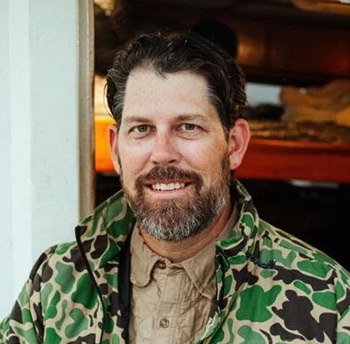 First as a shrimper but also as the vice president of the South Carolina Shrimpers Association and as a director of the U.S. Shrimpers Coalition, I write to voice strong support for the Save Our Shrimpers Act (H.7932) that recently was introduced in Congress by U.S. Rep. Troy Nehls, R-Texas. This critical legislation would prohibit U.S. funding for foreign aquaculture projects, specifically shrimp farming, financed through international monetary institutions such as the World Bank that are in turn sold back into the United States, hurting our citizens. The influx of foreign shrimp into our markets has created a severe oversupply, driving down prices and inflating cold storage costs — a double blow to our domestic shrimp industry, which includes both wild-caught and locally farmed shrimp. more, >>CLICK TO READ<< 07:10
First as a shrimper but also as the vice president of the South Carolina Shrimpers Association and as a director of the U.S. Shrimpers Coalition, I write to voice strong support for the Save Our Shrimpers Act (H.7932) that recently was introduced in Congress by U.S. Rep. Troy Nehls, R-Texas. This critical legislation would prohibit U.S. funding for foreign aquaculture projects, specifically shrimp farming, financed through international monetary institutions such as the World Bank that are in turn sold back into the United States, hurting our citizens. The influx of foreign shrimp into our markets has created a severe oversupply, driving down prices and inflating cold storage costs — a double blow to our domestic shrimp industry, which includes both wild-caught and locally farmed shrimp. more, >>CLICK TO READ<< 07:10
At start of season, shrimpers are ‘cautiously optimistic’ despite market concerns
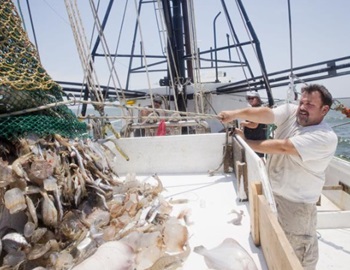 Fresh shrimp soon will be hitting the docks as the first stage of shrimp season gets underway the morning of April 19. This stage is limited to certain areas until the S.C. Department of Natural Resources can confirm the majority of female white shrimp have reproduced. “We want them to be able to spawn before harvest, because the current spawn will become our fall shrimp crop,” DNR spokesperson Erin Weeks said. This approach is essential to ensuring the industry remains sustainable, said Bryan Jones, South Carolina state co-director of the U.S. Shrimpers Coalition and a first-generation shrimper based in McClellanville. Photos, more, >>CLICK TO READ<< 12:28
Fresh shrimp soon will be hitting the docks as the first stage of shrimp season gets underway the morning of April 19. This stage is limited to certain areas until the S.C. Department of Natural Resources can confirm the majority of female white shrimp have reproduced. “We want them to be able to spawn before harvest, because the current spawn will become our fall shrimp crop,” DNR spokesperson Erin Weeks said. This approach is essential to ensuring the industry remains sustainable, said Bryan Jones, South Carolina state co-director of the U.S. Shrimpers Coalition and a first-generation shrimper based in McClellanville. Photos, more, >>CLICK TO READ<< 12:28
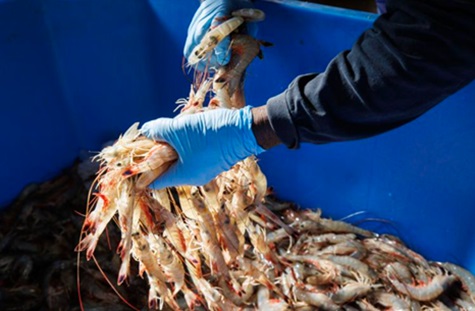
Editorial: South Carolina’s shrimpers are struggling; here’s 1 way to help
Those living in the Charleston area likely are well-familiar with the fact that our local shrimping industry has long been bruised by competition from imported shrimp, but the problem seems to have become more urgent than ever. Fortunately, there are steps we all can take to help out. As S.C. Shrimpers Association vice president Bryan Jones wrote in his recent letter to the editor, our state’s shrimping fleet has reached a critical juncture, threatening the livelihoods of thousands of families and a cherished way of life along our coast. That’s why our state’s association is joining with similar groups in other coastal states to press their case on both the state and federal levels, seeking an economic disaster declaration that would lead to short-term relief, such as low-interest loans and tax breaks. >>click to read<< 11:28
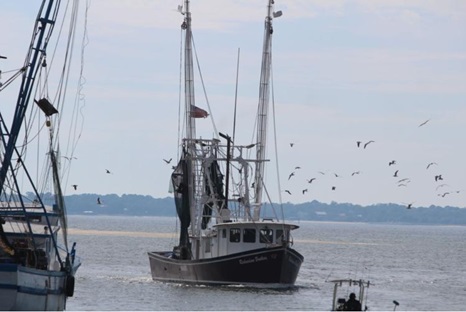
The Fleet fights back: Fishermen unite to curb shrimp dumping
Mount Pleasant’s Economic Development Committee met on Nov. 6 and voted in favor of the proposed economic disaster declaration from the South Carolina Shrimper’s Association and Southern Shrimp Alliance that asserts the Mount Pleasant shrimping fleet can’t sustain itself due to the harmful impacts of shrimp dumping, or the flooding of the market with imported, non-domestic shrimp. Mount Pleasant is the second municipality in South Carolina to declare a state of economic disaster for the domestic shrimping industry. Bryan Jones, vice president of the South Carolina Shrimper’s Association, said the declaration is more than symbolic — it’s one crucial part of a fight that is bringing fishermen from across the Southern United States together to defend their businesses, livelihoods and the shrimping industry as a whole. >>click to read<< 12:40

































